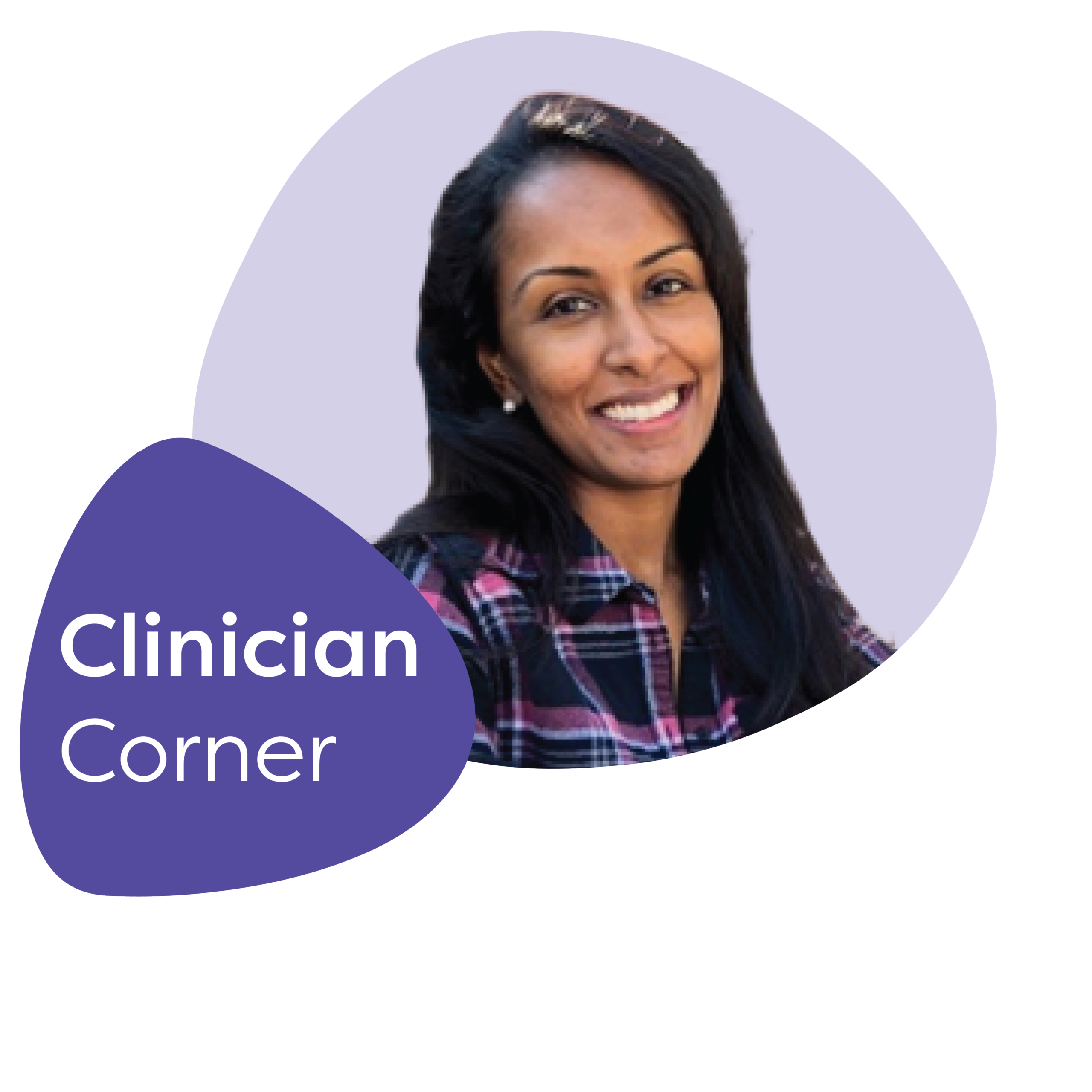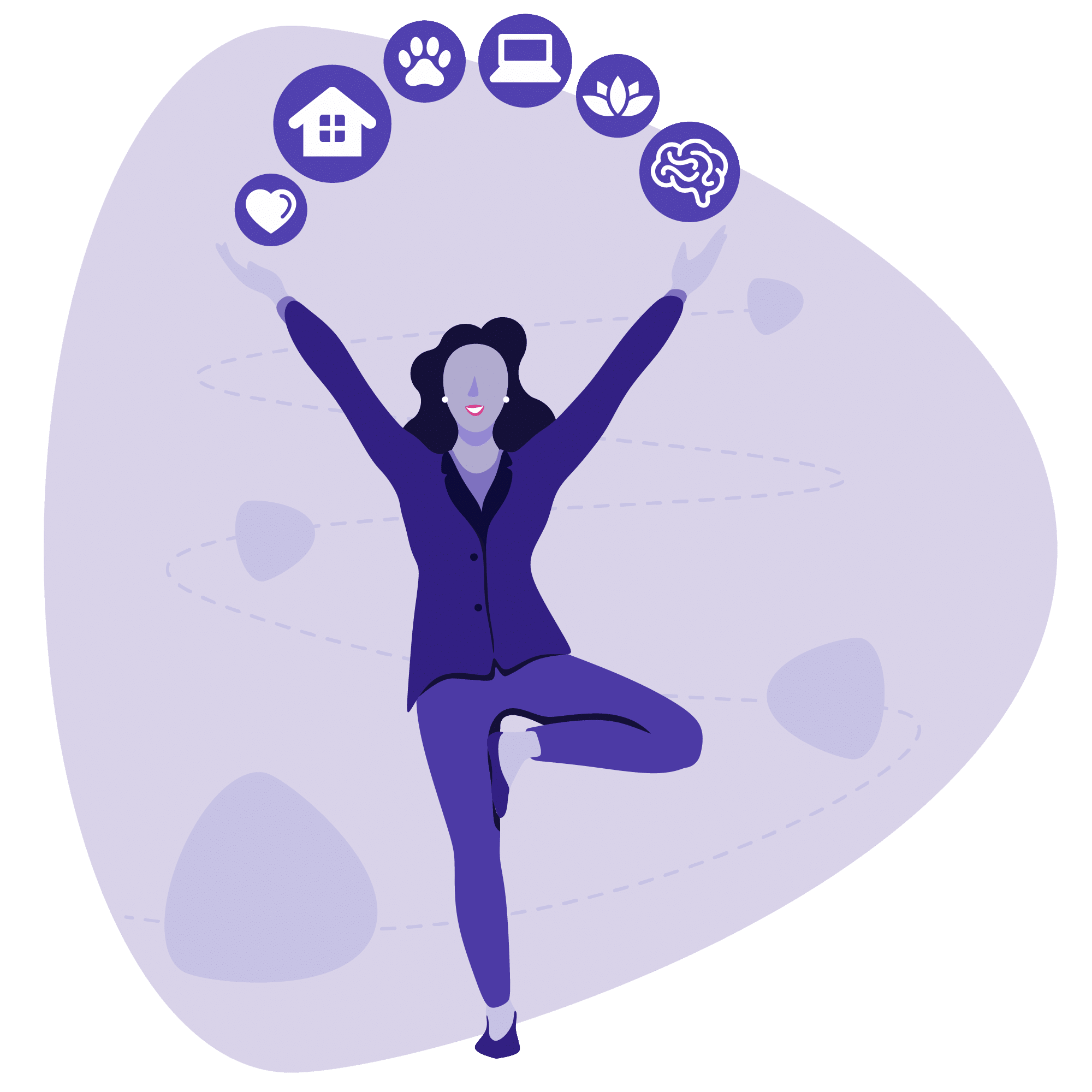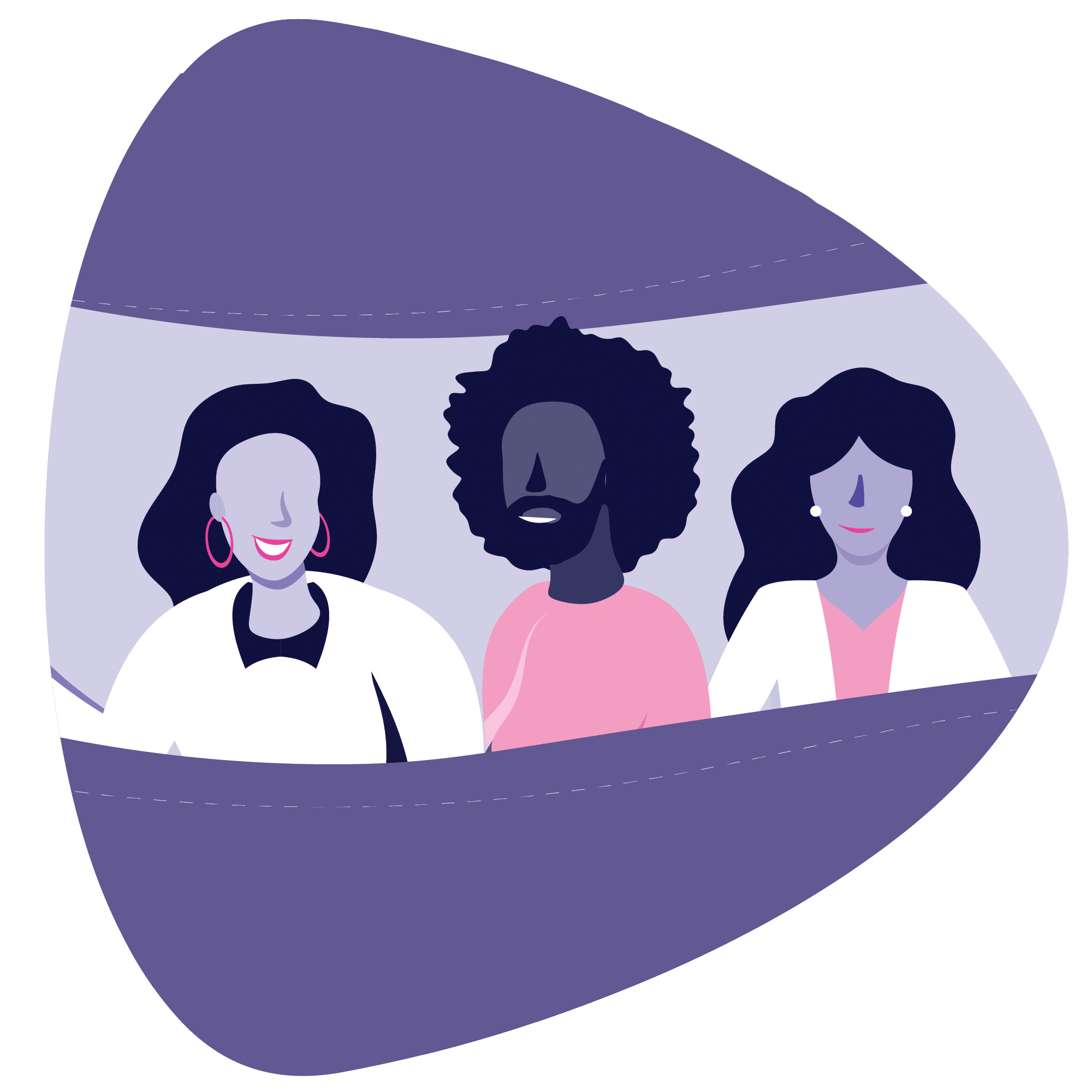Iris clinicians are at the heart of what makes our organization such a special place to work. That’s why we’re turning the spotlight on the amazing work they’re doing every day. This month, we’re sitting down to talk with Dr. Iype.
Q. How did you find Iris and decide you wanted to be an Iris provider?
A. Dr. Milam was my attending physician when I did my residency at Carilion Clinic in Roanoke, Virginia. I knew he was starting up something called Iris. Then, later on, after I graduated from residency, I was looking into telehealth options, and I saw Iris. It never linked until later after residency that, “Oh my goodness, this is what Dr. Milam was talking about!” It was natural to reach out to him and ask whether I would be a good fit.
Personal connections are how I usually learn about jobs. I trusted Dr. Milam to tell me about Iris; it sounded like a good fit.
Q. How does telepsychiatry compare to in-person care?
A. My first job was crisis walk-in and telehealth, too. I did a combo where I still had to go to the facility and do telehealth. Comparatively speaking, I live in the Maryland area, and it took me an hour to get to work. In terms of work-life balance, it’s amazing that I get to be present at work when I need to be at work and at home when I need to be at home. And there’s no in-between fluff of transportation or anything. That’s my biggest thing is the fluff isn’t there. When I’m with my patients, I’m with my patients. Then, when I’m with my family, I’m with my family.
Q. How do you foster connection with patients virtually?
A. I tell them what to expect. When I first start an interview, I ask them, “Hey, are you familiar with this kind of technology?” Some are, some are not. Then I equate it to something they’re familiar with, like FaceTime. I’ll say, “It’s similar to FaceTime, but this is more of a professional setting where you get to meet with your doctor.” Then I tell them the pros and cons. I lay it out there because most of the time, they’re very grateful they can see a specialist because of where I provide care. I provide care in Michigan, where specialists are few and far between.
A lot of patients do well with that. I have some people who will wait for me. I try not to be late, but they say, “It’s worth waiting for Dr. Iype.” That connection is there. Usually, because you listen and you’re attentive to details, people forget that there is a screen or a certain amount of miles, and they probably have to get on a plane to be in the same state as their physician.
Q. As a healthcare professional, how do you manage work-life balance?
A. I always say it’s a work in progress. I have two small kids. One is three, and the other just turned one. Home life is hectic in terms of their needs, but telehealth provides that work-life balance for me, and I don’t spend an hour commuting. I am as present as I can be with my kids when I’m there and with my patients as much as I can be when I’m there. The work-life balance is there because I’ve removed that commute time, which is important to me at this point in my career. I try to get into hobbies or be as connected to hobbies as much as possible, like reading and doing the things I enjoy on the side. My work allows for that flexibility.
Q. What is the most rewarding part of your job?
A. Change is very slow. For psychiatry, you don’t necessarily get that gratification of stitching up a wound. That immediate gratification isn’t there. It’s change over time. That might happen over years, months, and decades – to have patients succeed. It can be just from the fact that they’re able to go back to work or they’re able to go and do something that they were not able to do, interact more with friends or family. I get to be part of that journey. That change might not be so obvious the first time I met them or maybe even a year later. But the change I see is very gratifying in the length of time it took for that patient to get there.
It’s amazing. I love looking back at cases and seeing how far they’ve come, and I’ll mention it, and you get to share in that joy. An ER doc stitches up a wound; that’s great, it’s gratifying. It’s very physical, but my job entails more of a slower process, and I find that very gratifying because that’s almost longer lasting. It’s neat to see how far patients have come, and I get that continuity of seeing that.
It’s amazing to see the dynamics of growth, and growth happens slowly. Some patients become sober or quit smoking or do something where they’ll come back and tell you, “It’s that one conversation we had.” We might not think much of it, but that really stuck with them for some reason. They’ll say, “Dr. Iype, you mentioned I should stop smoking, and I actually did.” I say that to 50 patients, and probably two listen – that’s awesome. You might not have that conversation in the emergency room or someplace as fast-paced. I enjoy that it’s a little bit slower, maybe not as quick as other specialties, and objectively seeing things. But overall, I think there are incremental small, minute changes that are amazing and very impactful.
Q. What do you love about working with Iris?
A. They’re extremely efficient. Working for community mental health, if there’s an EMR-related question, I have to ask the organization’s IT team, and the efficiency and responsiveness may not be there. Iris is not the same — Iris is extremely responsive and very efficient. They are looking at, “Hey, how can I improve your workflow to make your life easier?” That is their motto, and they try to strive to live by it. Danielle Swanson, my Clinical Operation Manager (COM), checks in and asks, “Is your equipment up to date? Is there an extra camera that I can give you?” They’re looking for, “Is the doc doing what she loves? Which is seeing patients. Or is her time being spent trying to fix the camera?”
They work on making sure that I’m spending my time doing what I love. That is why I love Iris. I can text Danielle, call, and set up a meeting, and she checks in with me. The COMs are amazing. They’re lifelines and very helpful. IT is amazing. I know both sides because I work in the community mental health part, where they might struggle with efficiency and, sometimes, responsiveness. In contrast, Iris is quite the opposite, which is refreshing.
They’re like magicians or wizards. I’m like, “Danielle, I don’t know who to talk to,” and they make it happen. I’m like, “wizardry,” that’s what it is. Many places do not have COMs or people interested in making sure that you are doing what you want to do, which is seeing patients and not necessarily worrying about technical issues or tickets. That’s amazing. I’m working with wizards and magicians, and superheroes. That’s what I enjoy about working with Iris as opposed to somewhere else.
Q. Why do you think telepsychiatry is important to the future of mental healthcare?
A. Access to care. I work in Clair County, Michigan, and psychiatrists are not accessible. Small communities of people access mental health care through telehealth, and that’s it. These places are full of need, yet they don’t have a physician servicing that need other than through telehealth. It is vital in providing care to people that need it. It gives the physician flexibility to not necessarily live in that state but be able to provide much-needed care. There’s gratitude on the patient’s end for that access to care. And then there’s the gratitude of the physician having the flexibility to live where they want. It’s a win-win, and access to care is the most important piece.
Q. What advice would you give someone new to telehealth?
A. It’s most likely that you’ll never go back. If there’s a lot of fluff and other things taking you away from work, adding time to get to work, or barriers to being present at home, then telehealth is an option for you. It removed about two hours of my day going back and forth to work. If you’re looking for something that removes ‘the extra,’ I call it, then it’s something you should consider. It provides that work-life balance that a lot of people are seeking. When I turn on my computer, I immediately access my patients. When I turn off my computer, I have immediate access to my friends and my family.
What I love and wish and hope for someone who starts telehealth is that they can do what they love both in their personal lives and their career. I don’t think there’s any going back. There’s that flexibility. Iris is pretty awesome about being flexible with the hours and all of that. It’s awesome if you’re looking for something on the side or something else. It’s great.
At Iris, we believe our providers should be respected, valued, and applauded for the work they do, and we couldn’t be more proud to say, “thank you” to our very own Dr. Iype. If you’d like to learn more about working for Iris Telehealth, contact us today.



